How can I get my kids to do chores without nagging, bribing or punishing? Is there even a peaceful parenting way to get help around the house?
All around the world children help at home and in their schools with chores, cleaning, cooking and caring for children younger than them. Why, then, do we struggle so much with chores, and what can we do about it as conscious, peaceful and mindful parents?
I’m sure you want to raise children who are contributing members to the household. Children who are eager and happy to help. I do too. Sticker charts, threats, and payment aren’t the ways to go about it.
Here are the research-proven, mindful and conscious ways we can encourage children to be the helpers they so deeply want to be:
- Start Them Young
The toddler years are the best years to start. Nature is on your side here as toddlers want to help! Toddlers are known for wanting to copy you. They want to eat what you’re eating, do what you’re doing, act as you act (for more on toddler play schemas check out this blog post.) Around the world, in indigenous societies, toddlers are included in adult activities. Adults help find small and meaningful ways the toddler can contribute.There’s always something small that a toddler can contribute during chores.Help washing the dishes
Help with sweeping
Pass a the silverware
Set napkins on the table for meals
Wipe the table after meals
The catch is that their help isn’t always the most helpful, they’re toddlers. While they may wipe the surface or wash the dishes it may not be done to your standards. Instead of stopping them (which sends the message that they are incompetent and we will just do it better later thereby having them give up helping altogether) we can find tasks they can help with and let them help.
If you listen to their cues and signals from the earliest days that they want to be helpful and involve them, they will always be natural helpers and contributors to the household.via @ParentingJunkieTweet This
- Find Helpful Things Your Child CAN Do
Instead of getting it done yourself (unless you have to, which I get) or giving your child something insignificant, find meaningful contributions that are appropriate for their development and ability.Instead of thinking your child can’t help wash the dishes as they won’t be clean and doing them yourself ask your child to put the soap on the sponge, or rinse the dishes or dry the dishes.If our children see us redoing the work they did they will feel it wasn’t good enough or that their help doesn’t really matter.This means we need to slow down. We can find a way for them to help if we take the time. Maybe they cannot complete the whole task but there is a small momentary and meaningful part they can contribute.
- Work as a Team
Have you ever said to your child “you got the toy out so you need to put it away?” You’re not alone, I have too. The problem is this creates a power struggle. We end up blaming each other and assigning responsibilities based on previous actions. It also teaches our children a tit for tat and transactional approach to relationships, service, and contribution.Instead, establish the concept that we all help and pitch in. If I can help you, I will. If you can help me, please do. Working together as a team is satisfying. We find it intrinsically motivating to be a team member. This way it does not matter how much any one person has done, we all do what we can and contribute however we can.Also, while working as a team, try to make things fun. Wash the dishes while having a dance party. Kids usually love to spray things so fill up your spray bottles for them and let them clean the table. Play a game while clearing the table. Lighten up your own spirit and your kids will want to join you a lot more. - Do NOT Praise or Reward Help
This also includes not paying for help (I do believe in allowance NOT related to chores – for more on that check out this blog post). The research on this is clear. If you want your child to be intrinsically motivated (they are internally motivated to do something) instead of extrinsically motivated (they do something because someone will give them something or take something away) do not praise or reward them for helping.Rewards and punishments are extrinsic motivation (for more on that check out this blog post). A drive to be of service and interest in having fun is intrinsic motivation. Intrinsic motivation will die when extrinsic motivation is introduced. When you offer to help a friend and she, in turn, pays you do you still feel helpful? When you offer to pay someone for something that is part of a relationship dynamic it makes the job not as much fun and something the person does not want to do.
We don’t want to turn our relationship with our children into a business transaction.While it’s great to encourage entrepreneurship in our children (more on raising your child to be an entrepreneur here) and encourage them to look for ways to earn money we do not want to pay them for chores. When you pay for chores you send the message that this is work they are being hired for and can, therefore, quit at any time. The problem is that helping at home is not work you can quit. It’s a requirement and expectation of being part of a family and household.
There are natural consequences that will occur if chores aren’t done (for more on natural consequences vs. punishment check out thisblog post). Our children learn that laundry won’t get done, the table won’t get cleared, dinner will not be ready on time, toys will get lost if not put away, all of the things that can happen when they don’t lend a hand.Don’t undermine their contribution to the family by praising, rewarding or paying (for more on how praise undermines motivation check out this blog post)
- Be Appreciative
Instead of praising, give thanks. All our children need is a simple, authentic, “thank you.”Thank you so much for your help
That really made a difference to me
I really appreciate you lending a hand
It goes much quicker when I have your help
I’m so grateful that you’re helping me with this - Don’t Force It
Encourage help when your children want to help. Request help with a task they can do that is meaningful. And say things that show this is just something we do together. You can also offer choices: would you like to take the ketchup or the mustard off the table? Would you like to fold the laundry or make the beds?It’s a very slow and gradual process but take inspiration from many cultures around the world where children are very active members of their households and schools.In the Maria Montessori method, children are often included in housework (for more on how we apply Montessori at home check out this blog post). This work is not considered a punitive thing it’s something everyone does.As a parent, I’m going to include my child in the chores and expect that they help. It’s my job to slow down, to guide you, and to give you meaningful work that’s appropriate for your age and stage, and to celebrate your success and show appreciation.The more accessible you can make things for your children the easier it will be for them to help. Tools that are their size, a hamper they can access, their clothes in their own basket on the floor to put away. These types of things make a world of difference in making the chores accessible to children.Children want to be helpful, but just like everybody else, they do not want to be bossed around. They want to be contributors, not hired help, and they want to be competent, not made to feel redundant. We can all do this, it just requires a little bit of attention, patience, and grace.Ever feel like you cannot balance it all? That you have to choose between life with children, your sanity and a clean orderly home? If so check out this podcast.
I’d love to hear from you! What chores do your kids help with? Were you able to find small meaningful tasks to give your toddler to feel like a household contributor? Do you have any resistance to your children doing chores? What makes it difficult for you to allow them to help? Please leave your comments below or over in our (free & awesome) FB community Love Parenting with Avital.
↓ ↓ ↓ ↓ ↓ ↓ ↓ ↓ ↓ ↓

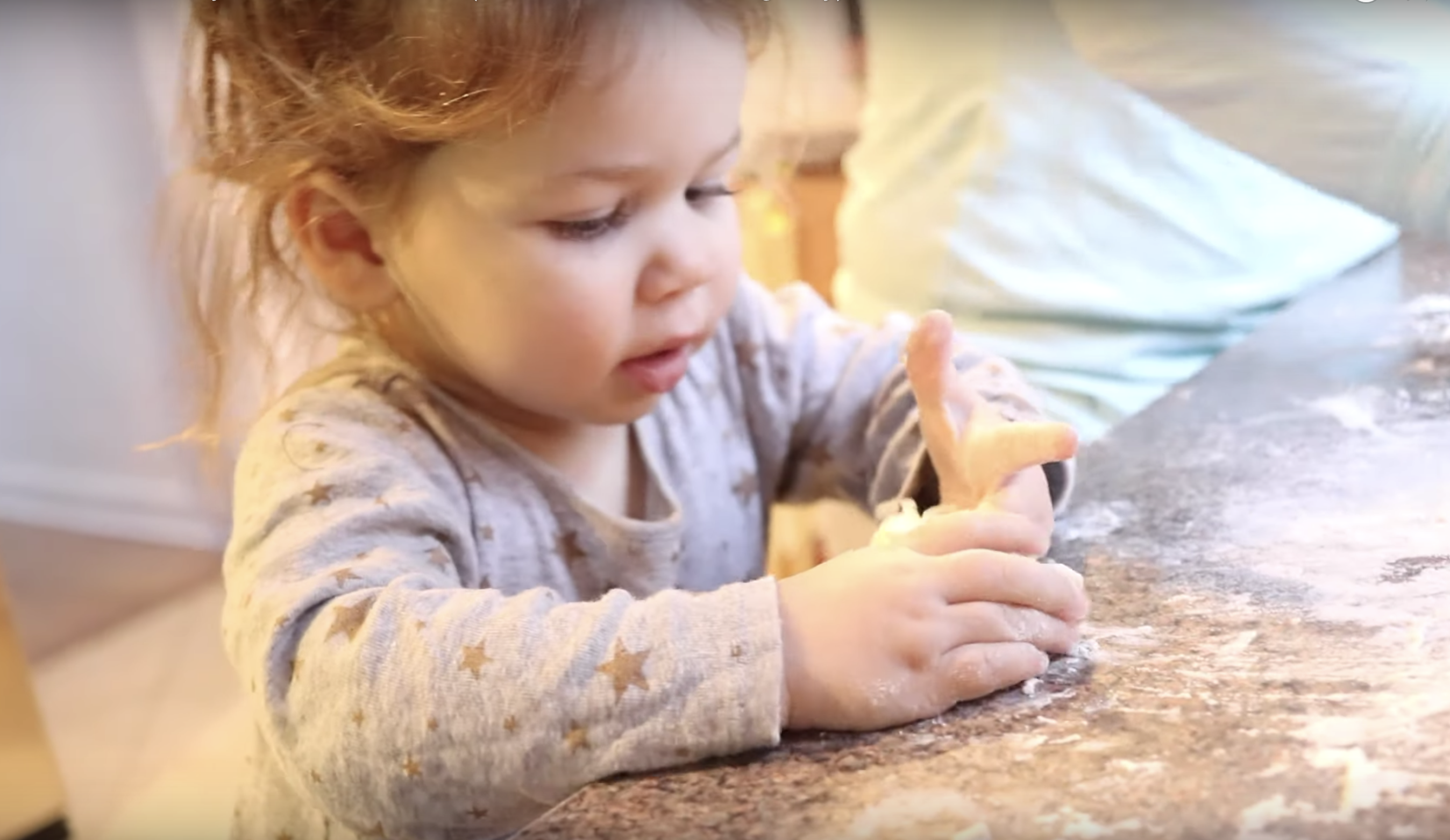






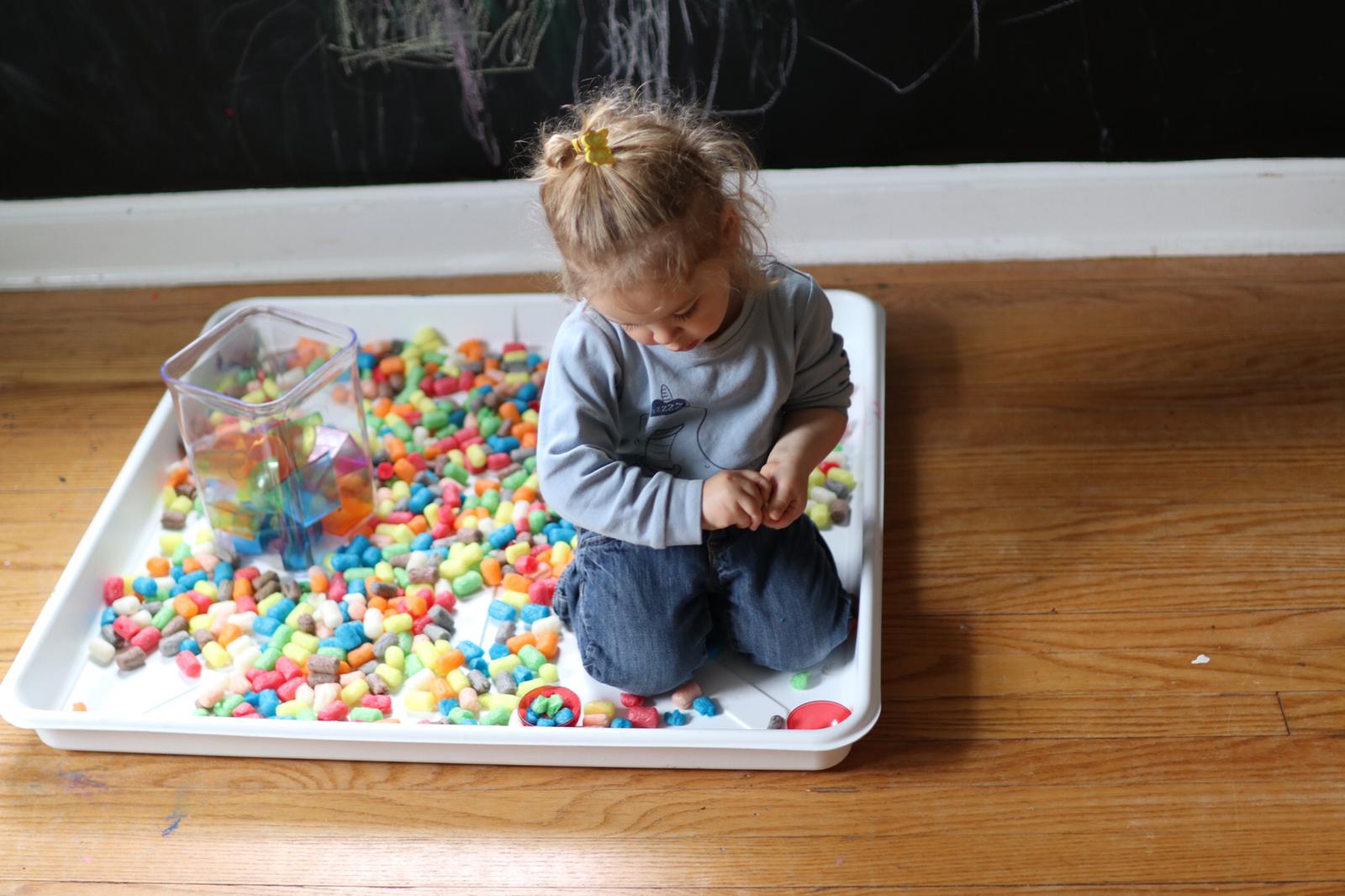
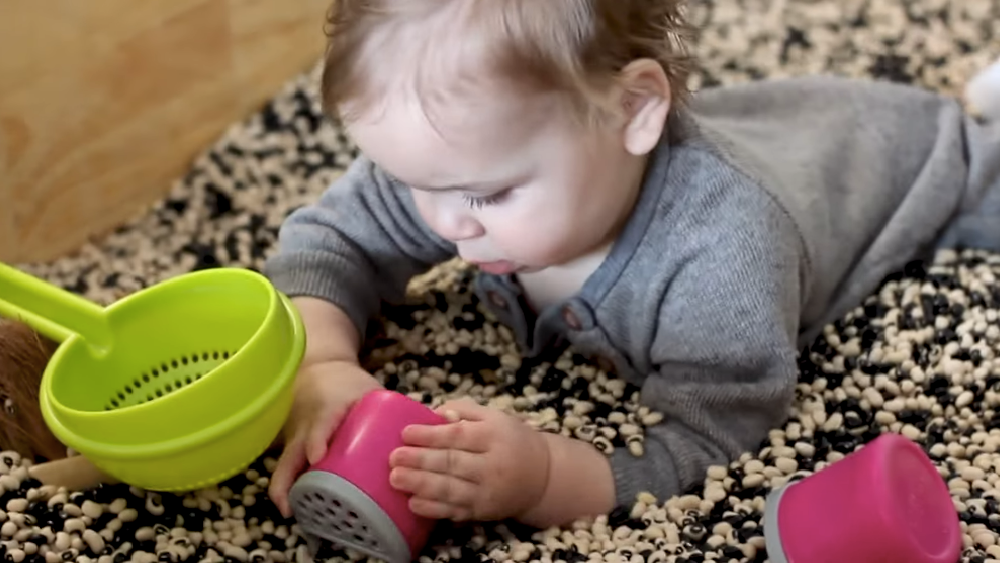

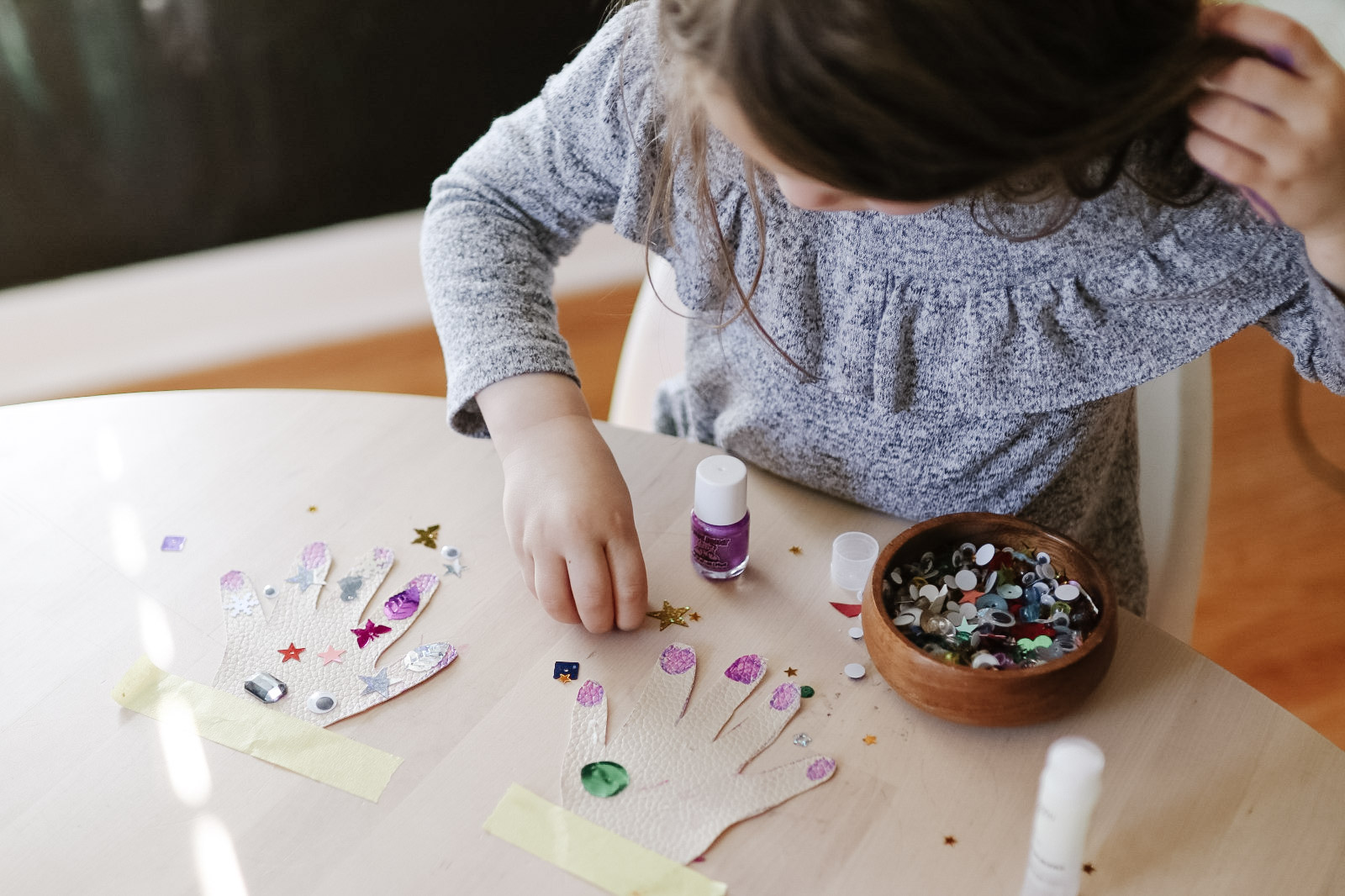
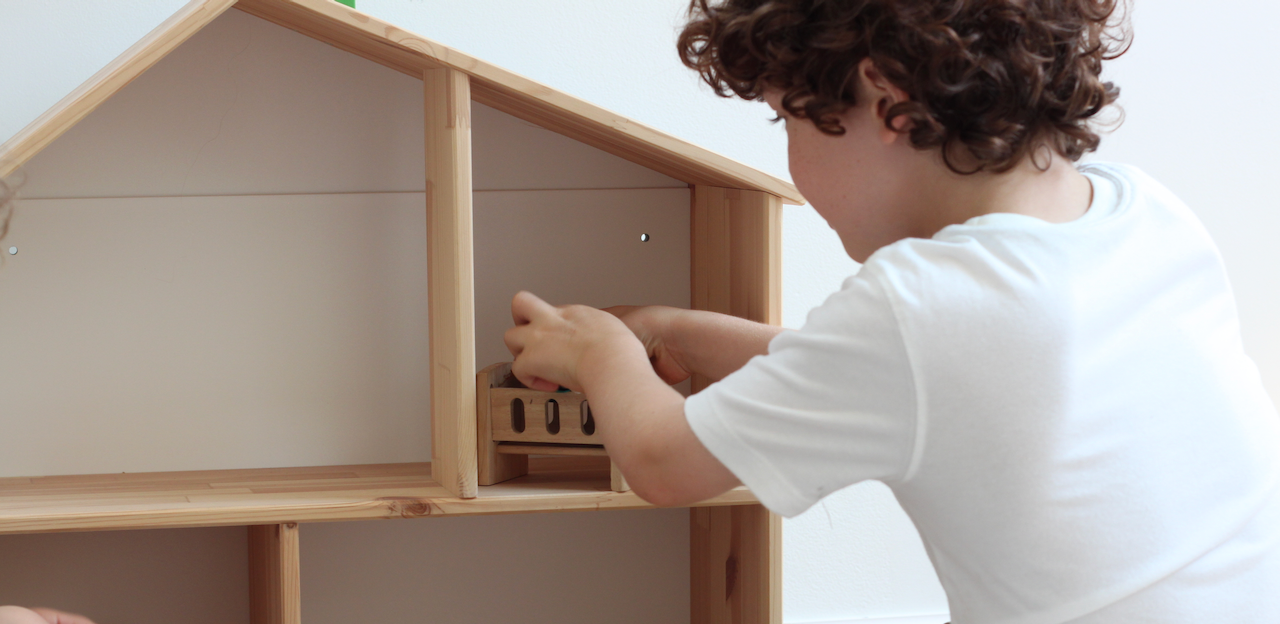

I have two toddlers, one is pretty into helping and I involve her whenever she is willing. I don’t really comment anything, as she seems to derive enjoyment. The other is kind of in a world of her own and is really scared of failure. For example, she tried to sweep once and it didn’t really cooperate with her the way she wanted, even though none of us made a comment, she just never wanted to try it again. How would you deal with that?
Hmmm… I think this might feel like a question that’s more about encouraging a chid to take personal growth and learning risks – rather than it be specifically about chores, right? Children who are worried about failure need to see us embrace it. if you could do some deep modeling and show how you often fail but you learn from it and try again – it may help.
Something like: “Ugh, I tried to pour my coffee but I spilled it. That’s frustrating, but I can clean it up and try again! No biggie, right?”
Also I would be uber focused on the process – the effort, the work, the trying – and not on the achievement with a child like that (or any kid really!)
Something like: “I really appreciate you sweeping, even if it feels like it’s not working so well that’s how we learn!”.
Does this resonate, Karen?
Thank you for this lovely video, I was wondering if you could link the knives that your kids used? Would love to get my little one involved in cooking more since he loves it so much. Thanks!
Yes Laura, thanks so much for being here – these are the knives: https://amzn.to/2X06Abb
I’m pleased to have read this article as it follows what I’ve always felt, about pocket money in particular, and have done this with my own kids. However, I dont think I’ve been consistent enough in getting my children to help out around the house, and that my eldest is 9 he VERY reluctant to do anything around the house. Does that mean I’ve failed due to my inconsistency or is just a phase?
I certainly wouldn’t see it in terms of failure! It just means it may be time to bring a fresh, gentle and inviting approach to it – and to make it fun and show your appreciation – perhaps that will motivate him? Of course as you say – things change all the time so it may definitely be a phase! 💕
I was listening to this as I was emptying the dishwasher, and, inspired, I asked my four-year-old to help me by emptying the utensil drawer. “Let’s do it together!” I chirped, trying (and apparently failing), to sound enthusiastic even though I’d been up since 4:30 am with the baby. I’ve tried unsuccessfully to get my big kid to help with this chore for two years, and after the “fun” wore off, she fought so badly that I just gave up. Anyways, this morning I was an idiot and said that we could have breakfast *after* we finished with the dishwasher. Twenty minutes later, she was still crying on the floor about how I refused to feed her, and I had emptied everything except for the final fork, begging her to just. please. put. it. away. so we can eat and move on, (and so I wouldn’t have to look like a chump). Guess who emptied the last fork? It was me. An hour later. We ate breakfast at 10 am.